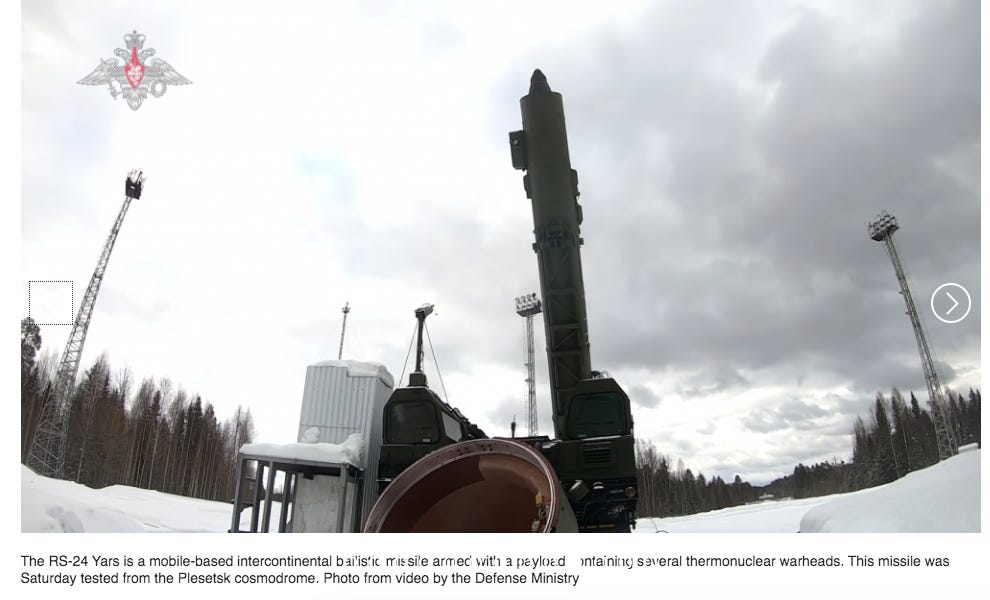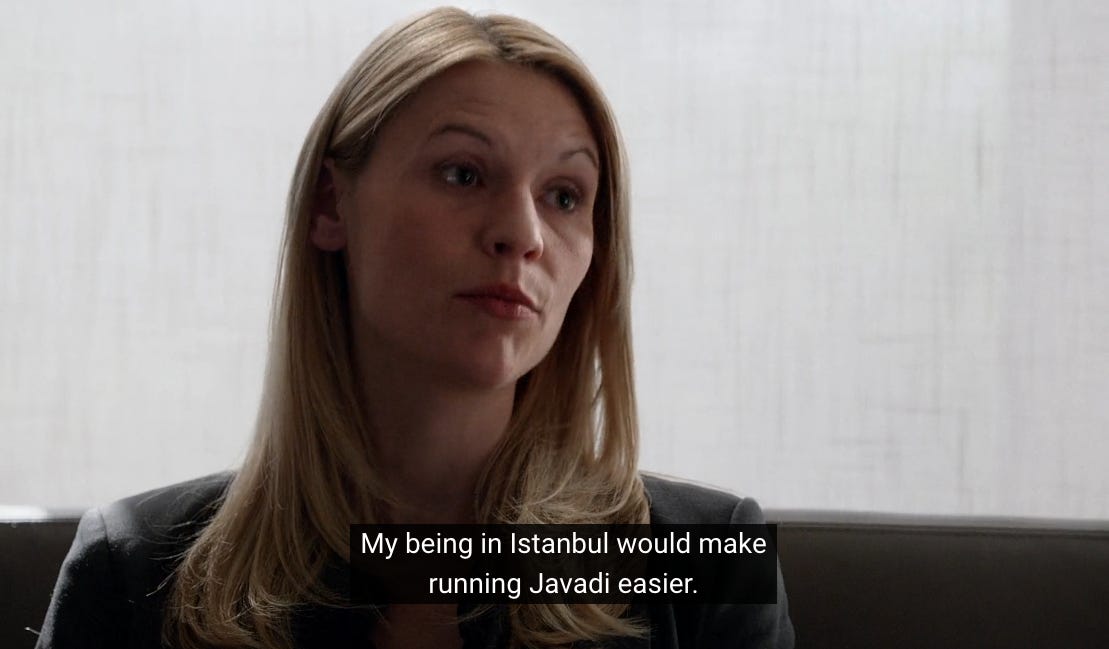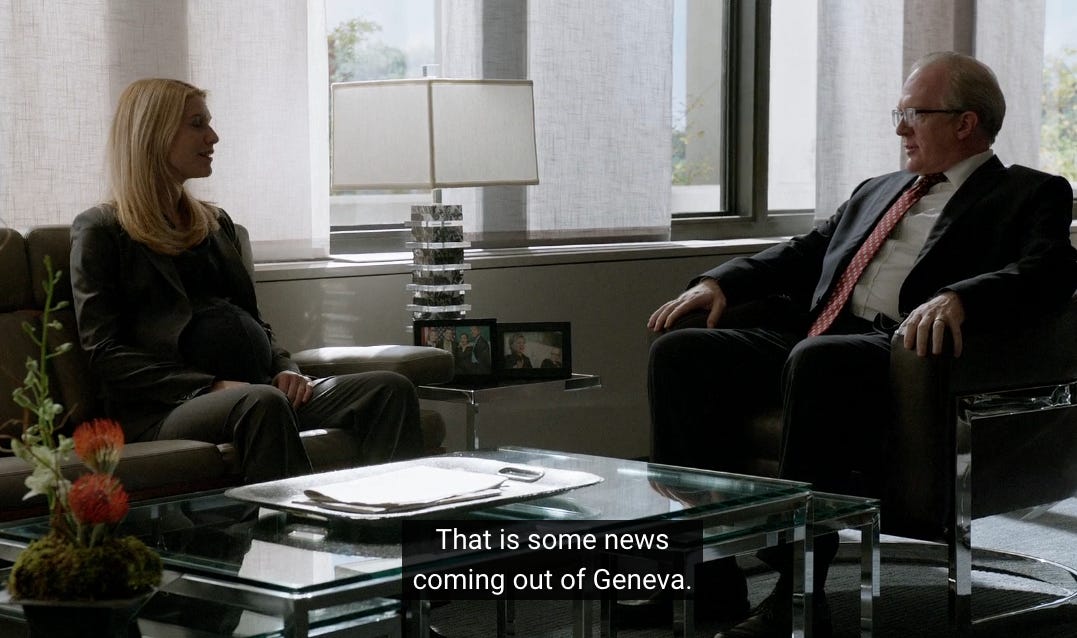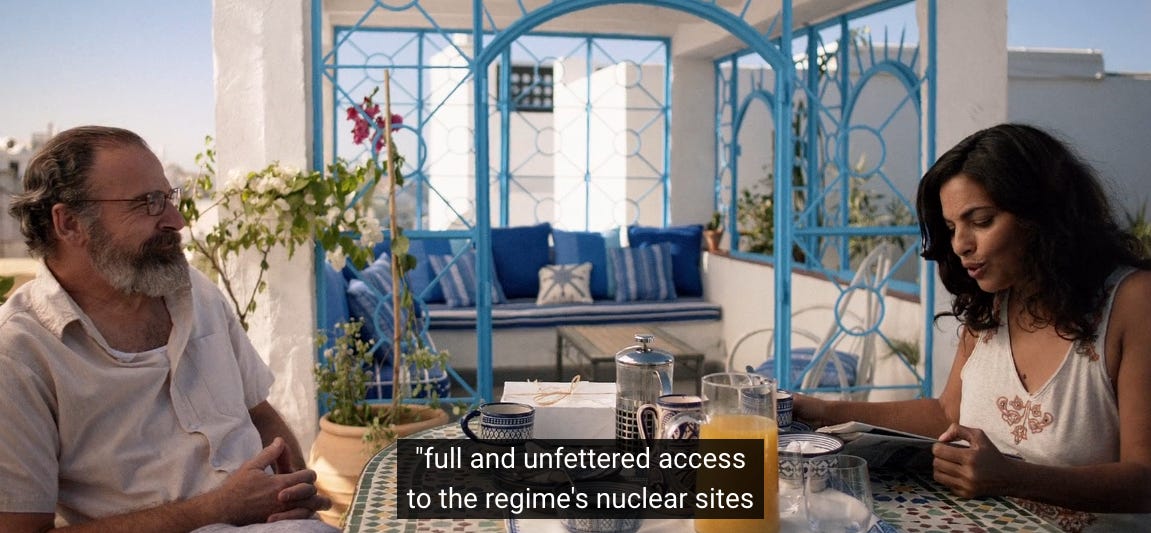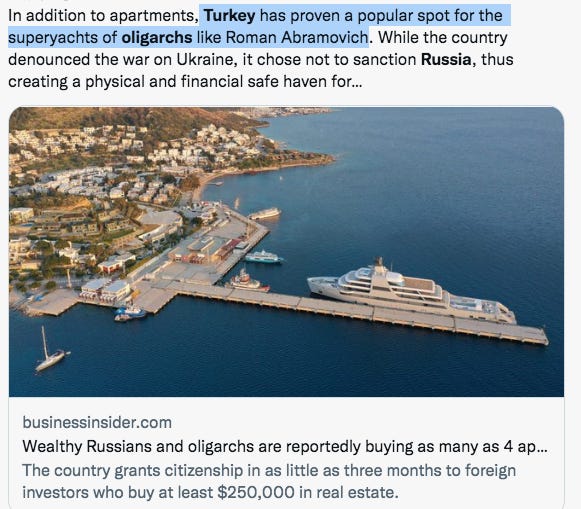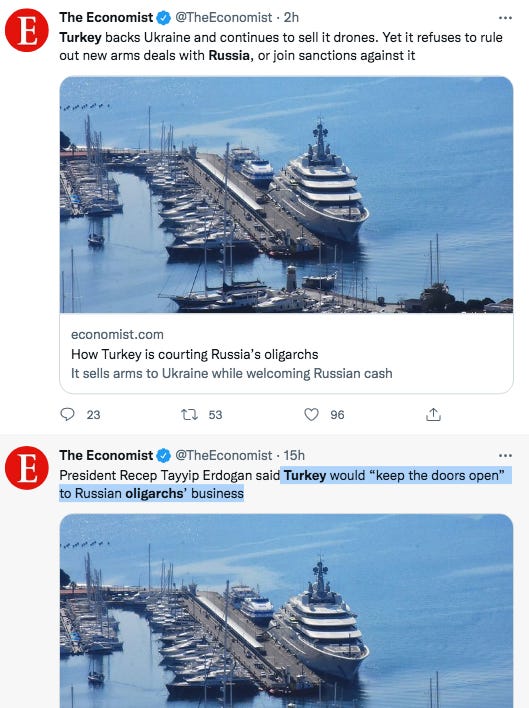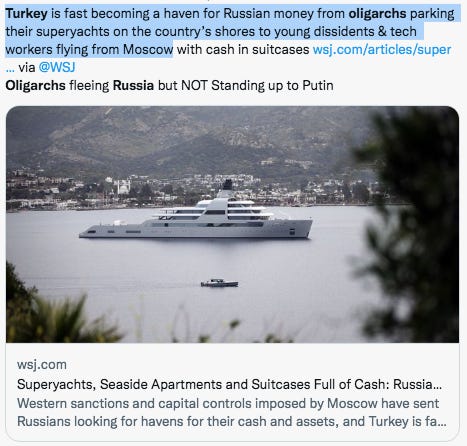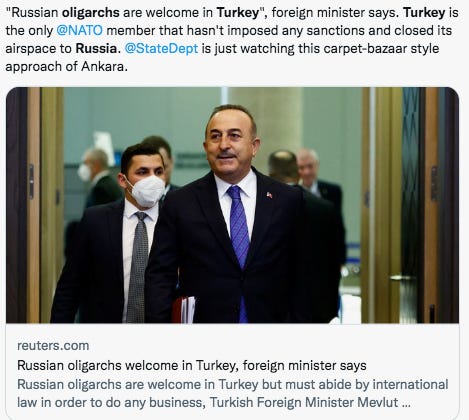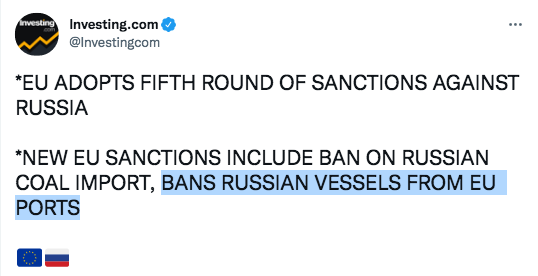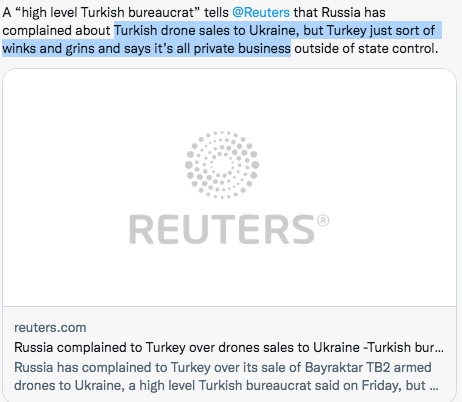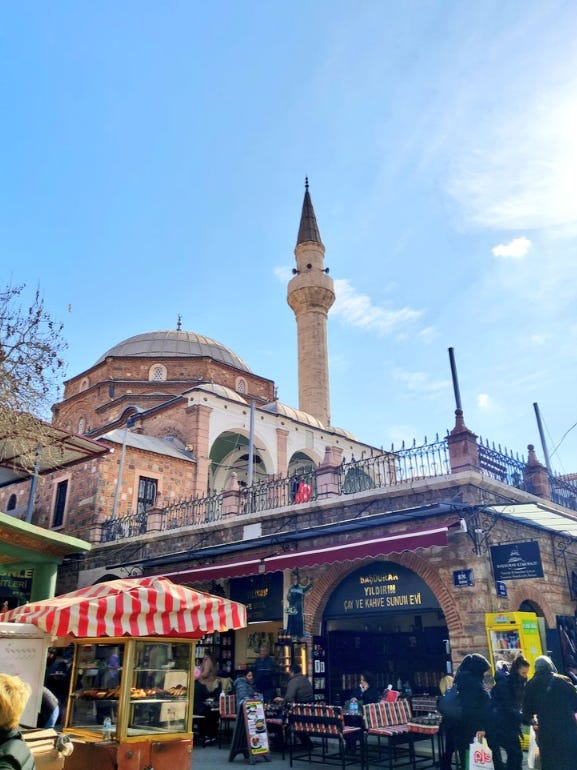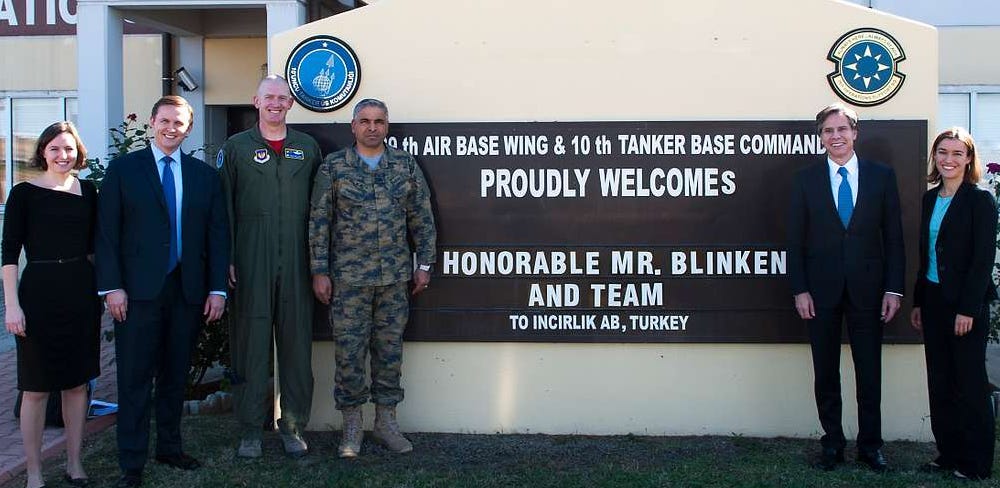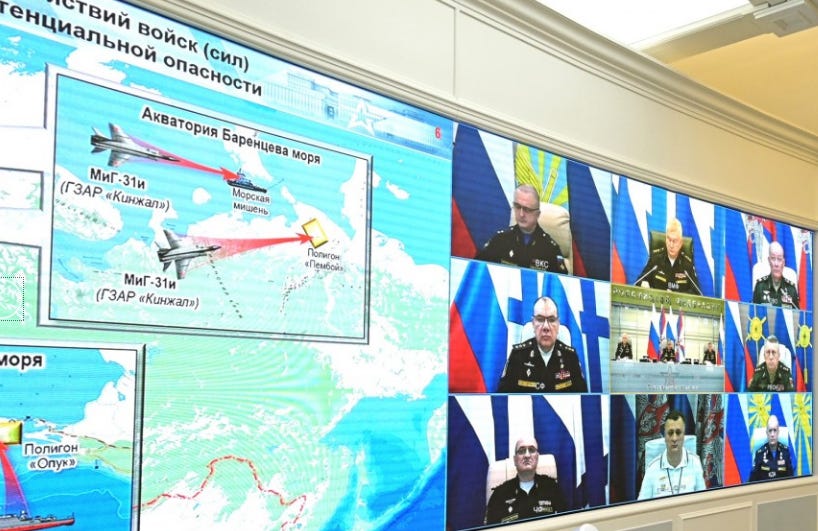When Conventional Weapon Cant Stop Putin in Ukraine
Nuclear crisis war in Europe soil, was, nearly happened, years ago, and not Russia - Ukraine today. The moment is (nearly) Coup d’Etat to Erdogan Presidency. Both Erdogan's side and his rival threatened to use nuclear weapons in Incirlik air base Turkiye.
I was in the UN office - Bangkok when this (Turkiye) crisis happened. I remind my colleague IR same campus with me, still in Turkiye when this crisis happened. She (maybe) on holiday after exam, because her campus (Erasmus Programme) isn’t in Turkiye.
American portrayed Turkiye and (specific) Incirlik to be “really vital”, same as Tel Aviv, even more important than Riyadh or Kuwait, old-school U.S. Ally. Turkiye is (in the mind American) controller for the Middle East region, even Turkiye not exactly in the MidEast and even Turkiye isn't Arab. “Premier”, “PM of Region”.
Back to the Turkiye crisis. Instead to be enemy of the West (after the failed coup d’etat to his seat), Erdogan even helped Ukraine and also the West. Bayraktar Drone, made in Turkiye, really useful by the Ukraine army to demolish (maybe) 500-700 tanks & armored vehicles by Russia Army so far. Even, Bayraktar help to keep safe Kyiv, because 60-miles column-stretch Russia tanks failed to occupy Kyiv because of a massive strike by Bayraktar.
Turkiye is also (very active) to create a meeting / peace talk, shuttle diplomacy (especially FM Cavusoglu) between the West, the Ukraine, and Russia. The latest, May 18th, FM Blinken invite Cavusoglu to Washington DC for Ukraine - Russia purpose. March 29th meeting-direct between FM Lavrov and FM Kuleba in Istanbul still astonishing, meanwhile atrocities in Bucha (and now in Borodianka and Kramatorsk) really destroy a mood in Ukraine side. Ukraine and Russia are "constantly" holding peace talks online after (astonishing) Istanbul meeting, but the mood has been affected by events including the deaths of civilians in the town of Bucha, Ukrainian negotiator and Zelensky adviser, Mykhailo Podolyak explain current situation.
Yes, Turkiye might be “playing on two feet” in Russia - Ukraine war (my live update about war, click here). Amidst sending “more and more” Bayraktar to helping Ukraine army, Turkiye enjoys to receive “richer, oligarchs” Russia in Turkiye soil, and also money. Turkiye, alongside India, UAE, Qatar, currently to be a new “safe haven” for Oligarchs after massive seized/freeze assets by the West in NYC, London, Berlin, Geneva. European Union reportage so far seized EUR 30 billion assets by Oligarch since war began (February 24th), meanwhile Swiss acclaimed (same worth) US$ 8 billion. Yalkavak, Bordrum, Maramis is several port in Turkiye, currently “too many” Yachts Russia-Oligarchs parking, amid EU (*Turkiye not yet EU members) will impose bans Russia vessels in all EUs port.
Back to the Nuclear Issue. Alongside Incirlik Air Base (at least 2,900 km from Moscow), another U.S. nuclear weapons in Europe soil:
Buchel Air Base (Germany) – 2,410 km with Moscow
Kleine Brogel (Belgium) – 2,427 km with Moscow
Aviano Air Base (Italy) — 2,425 km with Moscow
Ghedi Base (Italy) – 2,681 km with Moscow
Volkel (Netherland) — 2,430 km with Moscow
For comparison, distance Cuba with Miami (during the Cuban Crisis) was only 530 km.
No one did attack Iran (after the Iraq - Iran war) because Iran have a nuclear enrichment in Bushehr. No one did attack North Korea (after South Korea 1950) because Kim Jong-Un have a nuclear enrichment and also the Taepodong missile. So, what if, … Budapest Treaty 1994 never ever happened, and Ukraine really controlled nuclear weapons?
Both Biden & his U.S. Defense Minister Lloyd J. Austin III confirmed (April 8th, DC time 11.01 am), after #Slovakia transfer S-300 to #Ukraine, U.S. will reposition a 3 #Patriot missile, batteries, & crew-troops to Slovakia. In March 18th, same scheme by Netherlands & Germany to Slovakia after Slovakia sent S-300 to Ukraine. But once again, U.S. never ever decide to “No Fly Zone” rules in Ukraine.
At least impact Russia - Ukraine, 3 countries currently have an idea to use and have own nuclear weapon. Germany, even not only wants nuclear weapon, but also ICBM missiles. Poland request U.S. to put nuclear weapon in Poland soil, to be a new country (beside Germany, Netherland, Belgium, Italy, Turkiye). Japan also wants nuclear weapon, meanwhile this issue not from government, but from Former PM Shinzo Abe. Germany, Poland, Japan was a bad relation with Russia on war.
Although Russia has relied exclusively on conventional weapons for its invasion of Ukraine, behind the scenes lurks Moscow’s massive nuclear arsenal. Hours before Russian forces crossed into Ukraine (*war began at February 24th, 4.22 a.m. Moscow time / 3.22 am Kyiv time), Putin reminded the world that his country was “one of the most powerful nuclear states” and that anyone who interfered with his war in Ukraine or threatened Russia directly would face “consequences that you have never faced in your history.” Three days later, as global outrage grew, Putin ordered Russia’s nuclear forces to a higher level of readiness. Even without these explicit threats, Russia’s nuclear deterrent would have prevented Western countries from intervening in Ukraine. Beyond supplying Kyiv with anti-armor and light air defense weapons, they will not come to Ukraine’s defense for fear of nuclear escalation, as U.S. President Joe Biden and other NATO leaders have made abundantly clear. Now that Putin’s attempts to seize Kyiv have been thwarted, there is a risk he will use tactical nuclear weapons to bring Ukraine to its knees. And while this scenario remains unlikely, neither Ukraine nor NATO can do anything to prevent it from happening.
This is a particularly bitter pill to swallow for Ukraine, since it was once home to the world’s third-largest cache of nuclear weapons. After the collapse of the Soviet Union, Ukraine inherited a significant slice of the Kremlin’s nuclear arsenal. But in 1994, the newly independent country decided to surrender that arsenal in exchange for assurances from Russia, the United Kingdom, and the United States that its sovereignty and territorial integrity would be respected. The agreement, known as the Budapest Memorandum, is one that many Ukrainians have come to regret—first in the wake of Russia’s 2014 annexation of Crimea and invasion of eastern Ukraine, and now even more so after its all-out assault on the country. If Ukraine had held on to its arsenal, many have argued, Putin would never have dared to invade the country.
But Ukraine’s regrets about nuclear disarmament are misplaced. True, Ukrainian leaders willingly gave up their nukes, but the complex set of circumstances under which they did so have been grossly oversimplified in the narratives that have taken hold. What Ukraine inherited after the collapse of the Soviet Union was less of a usable nuclear deterrent than a proliferation starter kit that could have set the country on a path to becoming a nuclear pariah. The real mistake was not Ukraine’s decision to disarm but the West’s failure to hold up its end of the bargain. The United States and its allies should have done much more to ensure that the right lessons were learned from Ukraine’s disarmament—not only by Ukraine but by any state that might harbour nuclear ambitions.
At stake in Ukraine is not just the future of that country and its people but also something much bigger: the future of nuclear nonproliferation. If Ukraine successfully repels the Russian onslaught and recovers its territory and sovereignty, then the value of nuclear possession will diminish and the cause of nuclear nonproliferation will advance. If, on the other hand, Russia gets away with its invasion, it will have offered would-be proliferators an object lesson in the dangers of disarmament. The United States and its allies must do everything in their power to prevent that outcome.
As the Soviet Union began to crumble in 1991, the United States quickly formulated a policy that only one nuclear state should emerge from the rubble. On this, Washington saw eye to eye with Moscow. Everyone agreed that Russia should take over the Soviet Union’s seat on the UN Security Council and succeed it as a nuclear weapon state under the Nuclear Nonproliferation Treaty. But it was not a given that Russia would emerge as the sole nuclear successor of the Soviet Union. For that to happen, the Ukrainian puzzle would need to be solved.
Initially, Ukraine contested Russia’s claim to a monopoly on the Soviet nuclear legacy. It did so not because it wanted to keep nuclear weapons as a deterrent. To the contrary, Ukraine had started on its path to independence determined to become a state free of nuclear weapons—in part because the 1986 Chernobyl nuclear power plant accident had galvanized widespread antinuclear sentiment, and in part because Kyiv hoped to extricate itself from Moscow’s military grip. When the Soviet Union collapsed, Ukraine was an important staging ground for Soviet defenses against NATO, with roughly one million men under arms, one of five Soviet strategic missile armies, its most modern strategic bombers, and about a quarter of the Kremlin’s total nuclear arsenal stationed on its territory.
It was not a given that Russia would emerge as the sole nuclear successor of the Soviet Union.
But relations between Russia and newly independent Ukraine soured almost immediately. Ukrainian leaders suspected that Russia would find it hard to be an “equal among equals,” as then Russian President Boris Yeltsin had promised. They worried that if Russia monopolized all the most important international positions and statuses previously occupied by the Soviet Union, it would eventually seek influence over the former Soviet states. They were not wrong.
Kyiv therefore took the position that the nuclear armaments on its territory were its rightful property as a legal successor to the Soviet Union on a par with Russia. This did not amount to claiming the right to be a nuclear weapon state. For starters, Ukraine inherited pieces of a nuclear arsenal designed by the Soviet Union for its own strategic purposes—namely, to deter the United States and NATO. The launch authority remained in Moscow—only the Russian president was in possession of the so-called nuclear briefcase and the launch codes to authorize a nuclear strike. Moreover, although Ukraine inherited impressive industrial capacity to manufacture delivery vehicles such as missiles and aircraft, it lacked nuclear fuel facilities needed to produce fissile material for warheads.
In other words, Ukraine could have begun a nuclear weapons program, but doing so would have taken a great deal of time, money, and effort. Although it had capable scientists, engineers, and a loyal strategic aviation and missile officer corps that by 1994 had taken the Ukrainian oath, it would have had to build uranium enrichment or plutonium reprocessing and nuclear fuel fabrication facilities. It also would have had to design and manufacture nuclear warheads and missiles of shorter ranges in order to deter Russia rather than the United States.
Setting aside these technological challenges, to become a full-fledged nuclear possessor, Ukraine would have had to endure international opprobrium, isolation, and sanctions. The United States and its allies promised in no uncertain terms that Ukraine would become the North Korea of eastern Europe if it chose a nuclear path. Ukraine would have been shunned in international forums. It would have been denied access to Western-controlled international financial institutions, such as the International Monetary Fund and the World Bank, whose help Ukraine sorely needed to dig itself out of a deep post-Soviet economic crisis. And it would have to do without Russian shipments of energy supplies, including fuel assemblies for Ukraine’s nuclear power plants, which Moscow would have halted. In other words, whatever security benefits Ukraine would have gained from a nuclear deterrent would have been more than outweighed by their economic and political costs.
To become a full-fledged nuclear possessor, Ukraine would have had to endure international opprobrium, isolation, and sanctions.
To the extent that nuclear disarmament was a choice, then, it was a wise one. Ukraine insisted on a fair deal for relinquishing its nuclear inheritance. It negotiated hard, with little leverage, against two powerful interlocutors, Russia and the United States, who worked in tandem. The resulting settlement, finalized in 1994, included compensation for the fissile material contained in Ukraine’s nuclear warheads. It also included security assurances, codified in the Budapest Memorandum, from three nuclear powers: Russia, the United Kingdom, and the United States promised to respect Ukraine’s sovereignty and territorial integrity, abstain from economic coercion, and refrain from threatening force, nuclear or otherwise. They did not, however, agree to specific enforcement mechanisms that would be triggered by the memorandum’s breach.
Although these assurances fell short of the robust and legally enforceable guarantees Ukraine sought, the memorandum was—and is—an important political document, signed by four heads of state, acknowledging Ukraine’s legitimate security concerns. The Budapest Memorandum became part of the broader international nuclear nonproliferation regime, and until 2014, Ukrainians believed that it would protect them if they ever came under attack.
Since 2014, Putin has done much to make Ukrainians doubt the prudence of their nuclear choices. Yet the United States and its allies bear some responsibility for allowing Ukrainian doubts to look justified. In April 2021, Ukraine’s ambassador to Germany warned that if the United States and its allies did not allow Ukraine to join NATO or otherwise guarantee its security, the country reserved the right to “revisit its nuclear status.” Then, on February 19, as Russian troops appeared to be readying for an attack, Ukrainian President Volodymyr Zelensky threatened to withdraw from the 1994 agreement if Western nations did not provide real security guarantees. A week into the war, an exasperated Zelensky quipped that the diesel fuel NATO had supplied to Ukrainian troops could be put to better use by burning the Budapest Memorandum.
Zelensky’s caustic remarks might seem unjustified, given that the Western response to Russia’s invasion of Ukraine has been unprecedented in terms of the scope of military assistance to Ukraine and the severity of sanctions imposed on Russia. But for the last eight years, since Russia’s first invasion, the United Kingdom and the United States have taken a narrow view of their obligations under the Budapest Memorandum. Aside from an initial meeting of the signatories in March 2014, which Russia did not attend, the memorandum has not been a part of the discussion at all. None of the military assistance Washington and London have given Kyiv since 2014 has been framed as fulfillment of their security commitments under the agreement. And for reasons that are difficult to fathom, the United States opted to stay out of the peace negotiations between Russia and Ukraine in 2014 and 2015, leaving France and Germany to lead a process that produced a ceasefire but no peace.
It is not too late to help Ukraine defend itself and, in so doing, defend the nonproliferation regime.
The United Kingdom and the United States should have taken a wider view of their obligations under the Budapest Memorandum and used it as a framework for more expansive defense cooperation with Ukraine over the last eight years. Such an approach would have reassured Ukrainians that they would not suffer for their decision to disarm and would have boosted the credibility of the international nuclear nonproliferation regime. By visibly bolstering Ukraine’s defenses, especially its air and missile defenses, the United Kingdom and the United States would have raised the costs of a Russian invasion and possibly even deterred it.
That ship has unfortunately sailed. But it is not too late to help Ukraine defend itself and, in so doing, defend the nonproliferation regime. Ukraine should have everything it needs in terms of armor, air and coastal defenses, aircraft, and intelligence support to successfully repel the Russian invasion and recover its territory. The United States and the United Kingdom should also communicate clear redlines—such as the use of nuclear, chemical, or biological weapons—that if crossed would prompt them to reconsider their nonintervention stance.
Much is riding on the outcome of the war in Ukraine, not least the value of nuclear weapons around the world. If Ukraine beats back the Russian invasion, then countries may come to place less stock in nuclear weapons, potentially paving the way for a world in which no one has the power to unleash nuclear Armageddon. If Ukraine falls to a rogue nuclear power while the United States and its allies stand by, deterred by the specter of nuclear escalation, nuclear renunciation will come to be seen as folly—even if, in Ukraine’s case, it was the only sensible choice.
(This post dedicated to her, who trapped in “(nearly) Crisis Nuclear” the past, at Istanbul)




